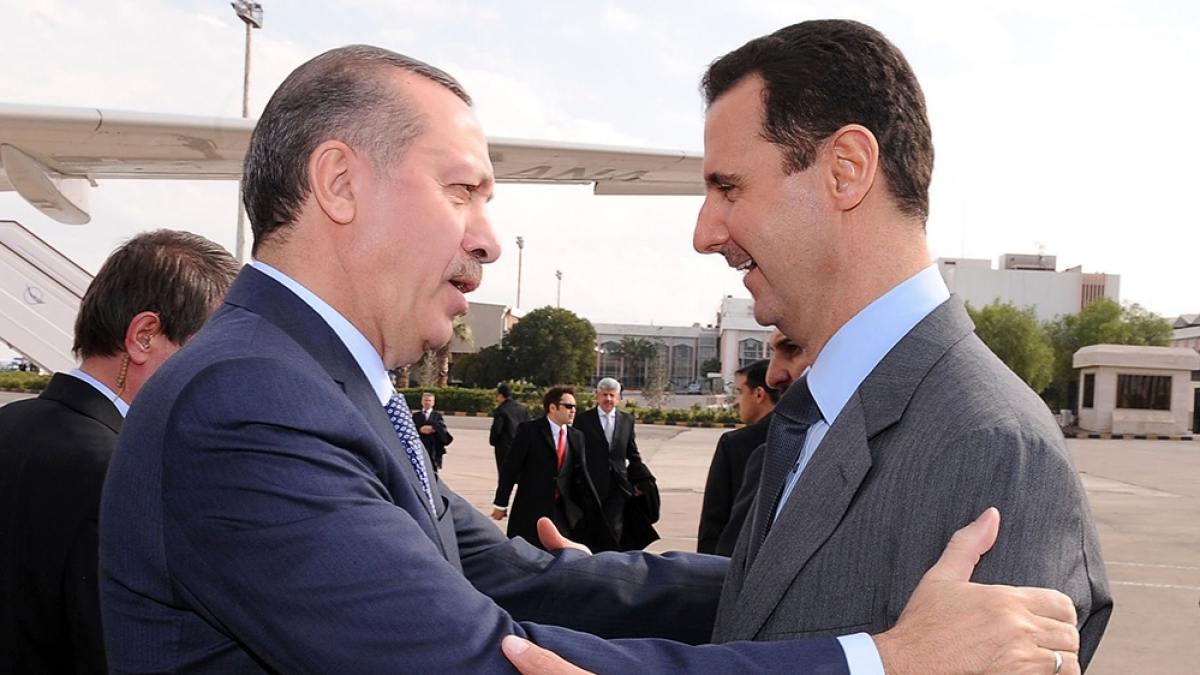
Turkish President Recep Tayyip Erdogan recently expressed his willingness to invite the head of the Assad regime Bashar al-Assad to Turkey, sparking significant controversy among analysts and political commentators. Erdogan’s comments were made during a press conference on Sunday, following his participation in the 24th summit of the Shanghai Cooperation Organization in Kazakhstan.
Erdogan stated that extending an invitation to Assad “may be at any moment” and emphasized the potential mediation role of Russian President Vladimir Putin and Iraqi Prime Minister Muhammad Shia al-Sudani. “We have now reached a point that as soon as Bashar al-Assad takes a step towards improving relations with Turkey, we will show this approach towards him,” Erdogan said, as reported by Anadolu Agency.
Critics argue that Turkey, which has historically supported the Syrian revolution and opposition, is making a significant mistake by considering rapprochement with Assad. The Assad regime is notorious for breaking agreements and failing to meet obligations under previous accords such as the Astana agreements and conditions set by the Arab League concerning refugees, border security, and drug and weapons trafficking.
Syrian journalist and political analyst Motaz Nasser expressed concerns about the repercussions of such a rapprochement. “Let Turkey get closer to whomever it wants, on the condition that we (Syrians) are not the sacrifice of this rapprochement,” Nasser said. “We have the right to have an independent entity that decides who we get close to, based on our own interests.”
Nasser stressed the importance of ensuring that the Syrian people or their revolution are not harmed by Turkey’s foreign policy nor made to sit aside as Turkey reaps benefits at the expense of the revolution, “we (Syrians) should not bear the burdens of its (Turkey’s) policies, while it alone monopolizes the spoils.”
Political analyst Levant Kemal, on the other hand, pointed to the long-term perspective of Turkish politics. “Turkey is taking steps within its own program. We can debate the timing and modus operandi, but as long as Assad remained in power, contact with him was inevitable sooner or later,” Kemal wrote on the X social media platform. “Since then, Turkey’s practical focus has been on its own border security rather than being the shepherd of the revolution. Assad’s overthrow has been out of the equation for years.”
Erdogan’s comments come at a time when Turkey is grappling with a significant Syrian refugee population. Analysts argue that inviting Assad for talks will not solve the refugee crisis but may exacerbate it as mentioned in a 2023 RAND report.
Erdogan has reiterated that any meeting with Assad would be coordinated with Putin. “Mr. Putin has an approach to the meeting with Assad in Turkey,” Erdogan said during his return from Kazakhstan. “We are talking about mediation, so why not talk to our neighbor?” Despite media speculation about an imminent meeting, Baghdad has yet to set a date for discussions between Syria and Turkey.
Erdogan’s proposal has been met with silence from the Assad regime, with no official comments from Assad or the regime’s Foreign Ministry. This silence adds to the skepticism regarding the sincerity and potential success of such diplomatic efforts.
Erdogan’s willingness to invite Assad to Turkey has ignited a heated debate among analysts and political observers. While Erdogan envisions a new process to restore Turkish-Syrian relations, critics and policy analysts like Euro News’ Refik Hodžić and Osama Seyhali, warn that trusting the Assad regime could lead to further instability and worsening of the Syrian refugee crisis.








